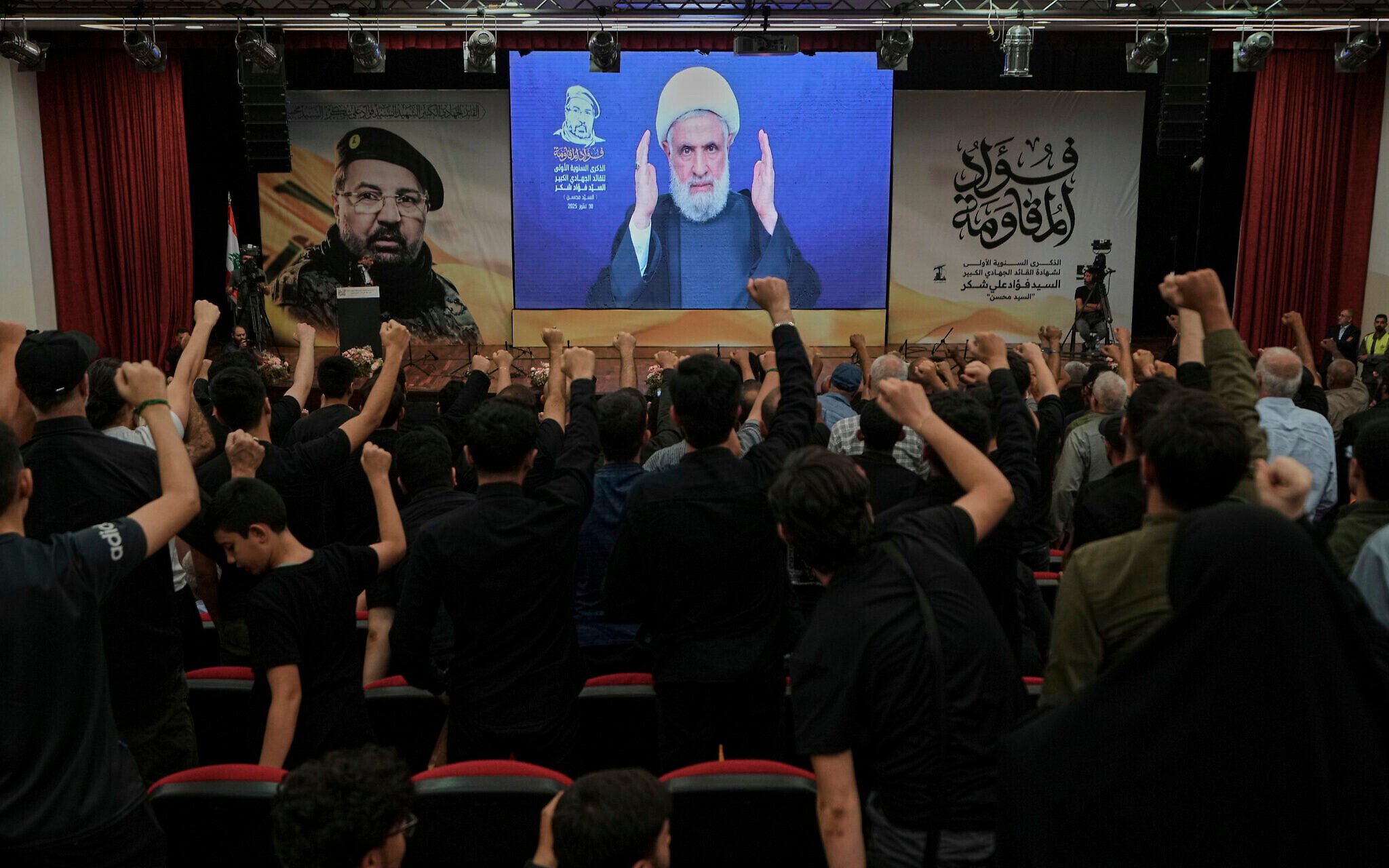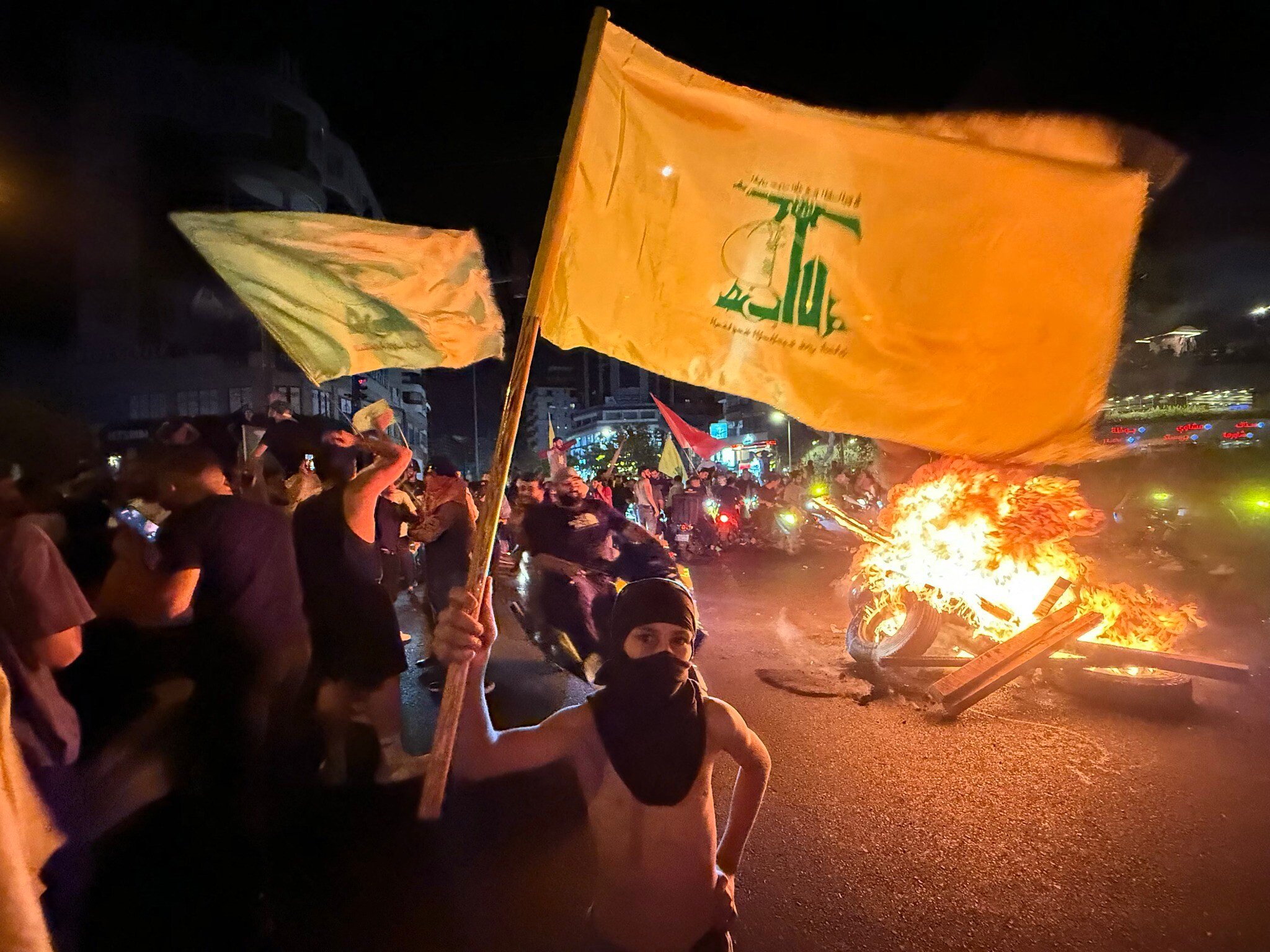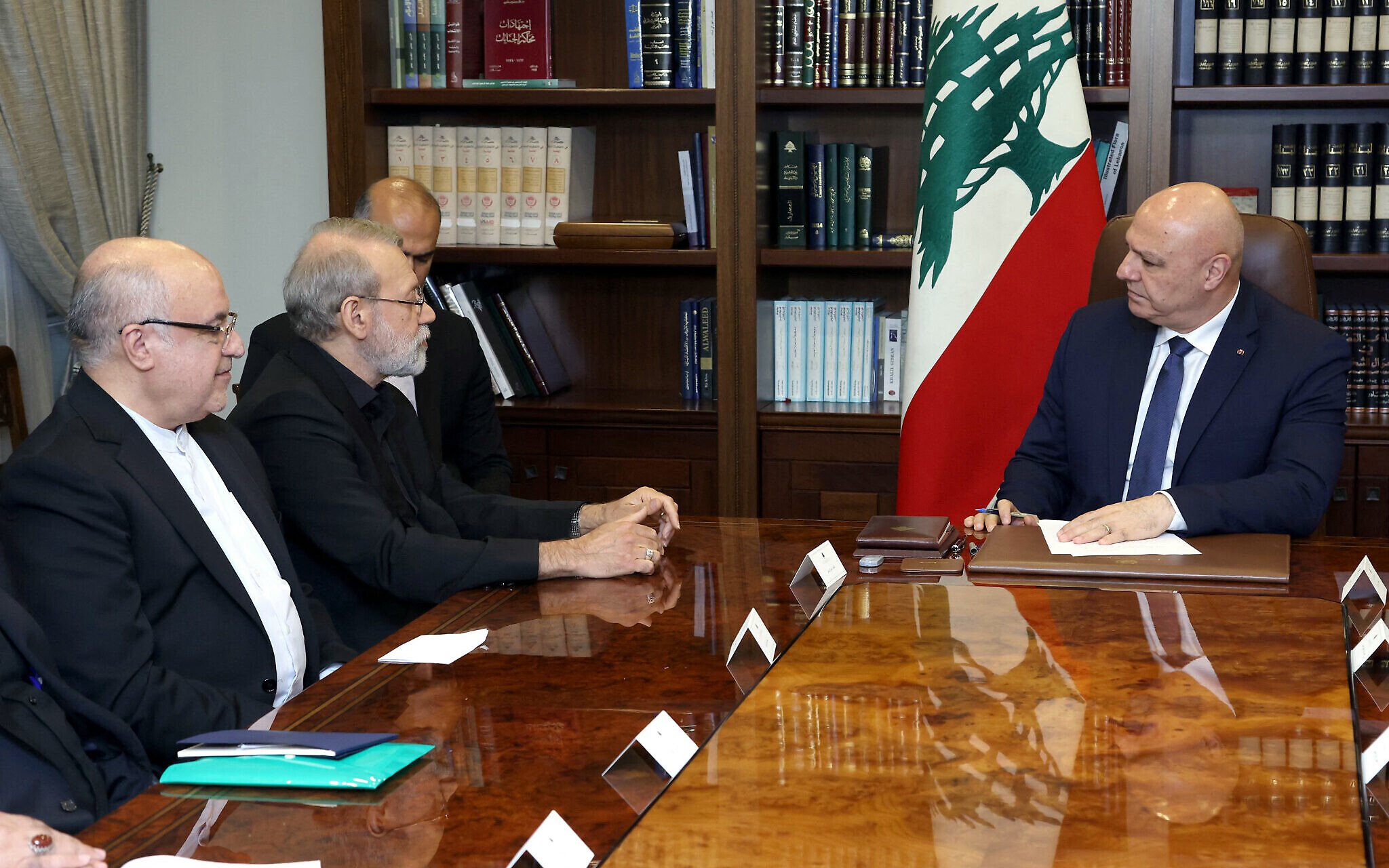



Hezbollah leader Naim Qassem threatened the Lebanese government Friday over its efforts to disarm the Iran-linked terror group, claiming that there would be “no life in Lebanon” should its weapons be taken by force.
Qassem warned that Hezbollah would fight to keep its weapons, saying any forcible seizure would lead to internal unrest, undermining the country’s national security.
He further accused the government of buckling to Israel, saying its leaders were “implementing an American-Israeli order to end the resistance, even if it leads to civil war and internal strife.”
“The resistance will not surrender its weapons while aggression continues, occupation persists, and we will fight it… if necessary to confront this American-Israeli project no matter the cost,” he said, cautioning the government “not to hand over the country to an insatiable Israeli aggressor or an American tyrant with limitless greed.”
Hezbollah and the Amal movement, its Shi’ite Muslim ally, had decided to delay any street protests against a US-backed disarmament plan as they still see room for dialogue with the Lebanese government, he said. But he added that any future protests could reach the US Embassy in Lebanon.
The terror chief leveled the threats as the Lebanese cabinet moves forward with the implementation of a US-backed roadmap to disarm Hezbollah, in line with a 2006 UN Security Council resolution that was largely ignored until the organization received a brutal beating in the 2023-2024 conflict with Israel.
Lebanese Information Minister Paul Morcos said the cabinet accepted the principles of the US proposal — such as “the gradual end to the presence of non-state armed groups in the country, including Hezbollah, both north and south of the Litani River” — but added that the full details of the plan were not discussed in depth.
The step is aimed at further weakening the terror group, already losing its grip on power since the 2024 ceasefire with Israel and the rise of the new Lebanese government.

Hezbollah ministers walked out of a cabinet discussion on the plan last week, as the Iran-backed group derided the move as a “grave sin” and vowed to act “as if it did not exist.”
President Joseph Aoun doubled down on the move on Wednesday this week, warning a senior Iranian official on a visit to Beirut against interfering in Lebanon’s internal affairs.
Aoun told Ali Larijani, the head of Iran’s top security body, that “it is forbidden for anyone… to bear arms and to use foreign backing as leverage.” Despite Iranian opposition to the move, Larijani vowed Tehran’s continued support.
Hezbollah is an Iranian proxy that has acted largely in line with Tehran’s wishes over the years.

Iran and its so-called “axis of resistance” — including Hamas in Gaza and Yemen’s Houthis — have suffered a series of blows in their long-running quest to eliminate Israel after Hamas sparked the ongoing war with Gaza with its October 7, 2023, massacre in southern Israeli communities.
Hezbollah suffered devastating losses to its infrastructure and leadership after launching cross-border attacks on Israel a day after the 2023 Hamas-led invasion. In September 2024, Israel launched a major offensive against the group, which ended with a November 2024 ceasefire.
Israel has already signaled it will not hesitate to launch military actions if Beirut fails to tackle the group, and routinely carries out airstrikes in Lebanon despite the ceasefire. It says it is responding to violations of the agreement and that the truce’s terms allow it to do so.
